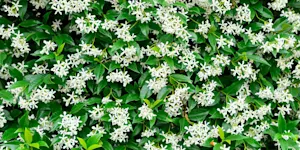What Makes This Word Tick
The word "pendulous" brings to mind something delicately hanging, like a ripe fruit ready to fall or the gentle sway of a willow's branches. It's all about suspension with a hint of elegance or, sometimes, awkwardness. You might picture something dangling just above a safe distance, beckoning gravity to make up its mind.
If Pendulous Were a Person…
Imagine Pendulous as a slightly indecisive character at a party, lingering in doorways and hovering near the punch bowl. They're enchanting in their own fluid, easy-going way—never seeming rushed or rigid. They’re likely to be seen swaying to the music on an outdoor patio, catching the evening breeze.
How This Word Has Changed Over Time
"Pendulous" comes from the Latin "pendulus," a mid-17th century term describing the very act of hanging. Over time, its application expanded from the strictly physical to the metaphorical, often used to describe situations or moods that seem to hover uncertainly.
Old Sayings and Proverbs That Use Pendulous
While traditional proverbs specifically using "pendulous" are as rare as hen's teeth, the concept finds life in phrases like "hanging by a thread," evoking that same sense of suspense and vulnerability—but with a bit more drama.
Surprising Facts About Pendulous
Did you know "pendulous" is often used in horticulture? Certain plants, like the pendulous begonia, have drooping flowers, adding a touch of grace and movement to gardens. It’s not just an aesthetic term but a botanical description quite favored by green thumbs.
Out and About With This Word
You'll find "pendulous" wandering the gardens of stately homes, possibly attached to rare varieties of plants. Or maybe it's clinging to the branches of an old oak tree in an out-of-the-way park, enjoying the gentle tug of the wind and the view below.
Pop Culture Moments Where Pendulous Was Used
Though not headlining any blockbuster, the word has cropped up in novels and films to describe eerie landscapes or whimsical settings—where a character's fate might hang in the balance much like a pendulous fruit clinging to its branch.
The Word in Literature
In literature, "pendulous" often adds a layer of vivid imagery to descriptions, helping readers visualize scenes with more depth. Think of swaying cobwebs in a gothic novel or boughs bowing under the weight of morning dew in a pastoral poem.
Moments in History with Pendulous
Imagine the tension-filled days leading up to the moon landing. The word "pendulous" might capture the anxious anticipation that hung in the air before humanity's giant leap—an event teetering on the edge of the unknown.
This Word Around the World
In France, a similar idea is captured by the word "pendant," used for something hanging. Over in Japan, the concept of suspension translates into their elegant hanging lanterns, which embody a quiet serenity and a pendulous grace.
Where Does It Come From?
"Pendulous" traces its origins to the Latin "pendulus," meaning "hanging down." It bears close ties with words like "pendant" and "pending," all suggesting something that hangs or is in the process of hanging in time or space.
How People Misuse This Word
"Pendulous" sometimes gets mistakenly used in place of "ponderous"—don’t let the similarities in sound fool you. A pendulous thing sways; a ponderous one weighs heavily. The two are not interchangeable, though both are descriptive in their own right.
Words It’s Often Confused With
Ponderous: Often confused due to phonetics, but "ponderous" means heavy or awkward due to weight.
Dependent: While also implying a form of hanging, "dependent" leans more toward a reliance relationship.
Pendant: A physical object that hangs, often jewelry, whereas "pendulous" describes the motion or state.
Additional Synonyms and Antonyms
Synonyms for "pendulous" include swinging, dangling, and drooping. Antonyms, on the other hand, would be steady, fixed, or upright.
Want to Try It Out in a Sentence?
The pendulous branches of the willow tree swayed gently in the breeze, casting playful shadows on the lake's surface.
















